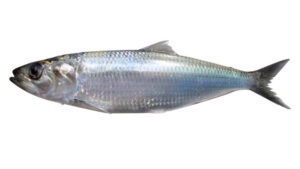Fishes of the Danube Delta and the Black Sea
The Danube Delta and the Black Sea are home to an incredible diversity of fish species, playing a vital role in both the ecosystem and local communities. These waters support migratory, freshwater, and marine species, many of which are highly valued in fishing traditions and culinary culture. From small, delicate fish to large, powerful predators, each species has adapted to thrive in the unique conditions of these habitats.
The Importance of Fish in the Danube Delta and Black Sea Ecosystem
Fish are a crucial component of the food web in the Danube Delta and the Black Sea, serving as prey for larger predators such as birds, seals, and other fish. Additionally, many species contribute to maintaining ecological balance by controlling insect populations or feeding on algae and detritus. The presence and health of fish populations are strong indicators of water quality and overall ecosystem health.
Conservation Challenges
Despite the rich biodiversity, many fish species in the Danube Delta and Black Sea face serious threats, including overfishing, pollution, habitat destruction, and climate change. Industrial activities, dam construction, and illegal fishing practices have significantly impacted fish populations. Conservation programs, sustainable fishing regulations, and habitat restoration projects are essential to ensuring the long-term survival of these species.
The Role of Fish in Local Culinary Traditions
Fishing has been an integral part of life in the Danube Delta for centuries, shaping local culinary traditions. Freshwater fish such as carp, pike, and catfish are commonly used in traditional dishes like saramură de pește (grilled fish in brine), plachie de pește (fish stew with vegetables), and bors de pește (fish soup). The famous scrumbie afumată (smoked shad) is a delicacy enjoyed throughout Romania. Sustainable fishing practices are essential to preserving these traditions for future generations.
Conclusion
The Danube Delta and the Black Sea are home to an extraordinary variety of fish species, each playing a key role in the ecosystem and cultural heritage of the region. Protecting these species requires a combination of conservation efforts, responsible fishing, and public awareness. By appreciating and safeguarding the rich aquatic life of this region, we ensure that future generations can continue to enjoy both the natural beauty and culinary traditions tied to these waters.


